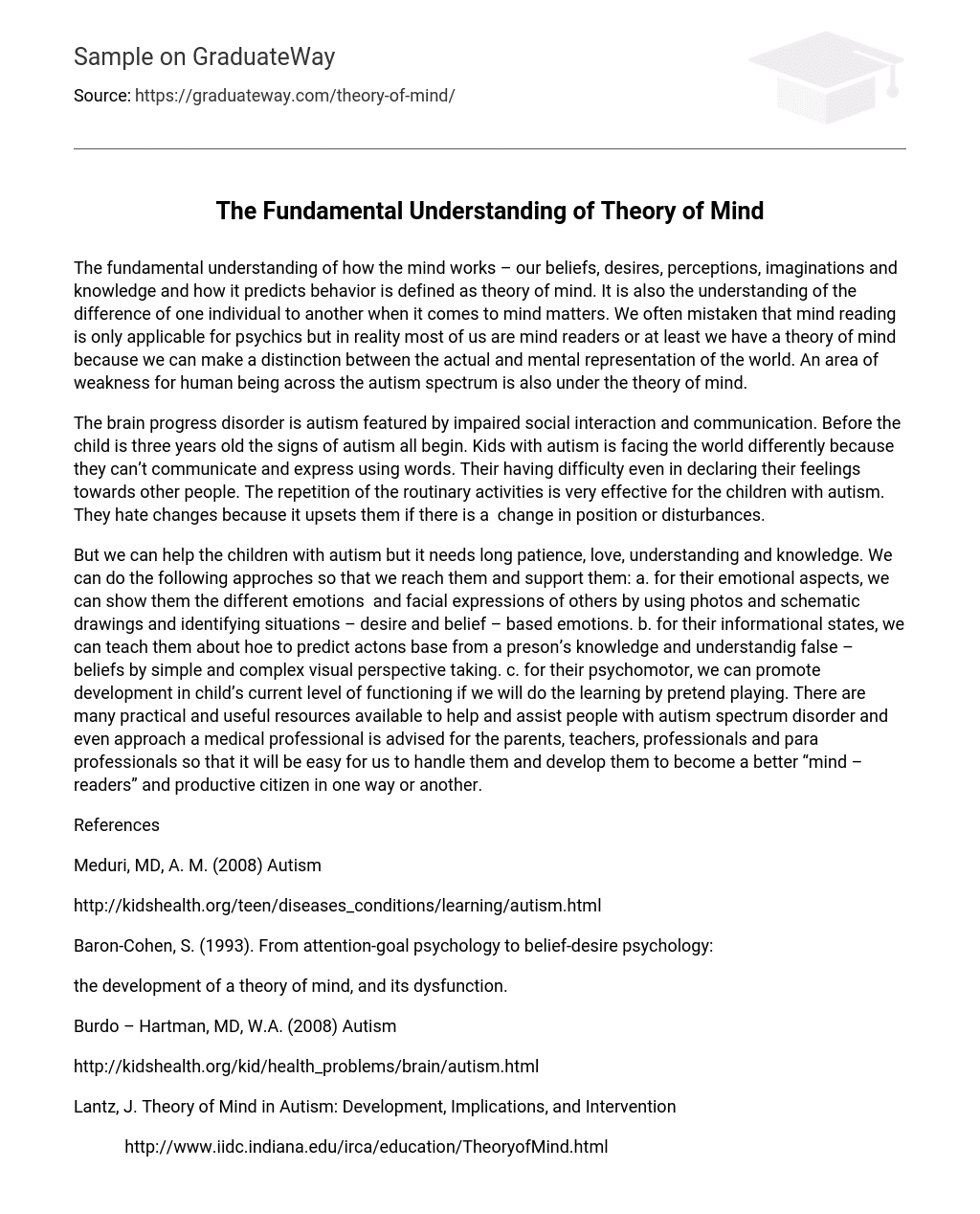The fundamental understanding of how the mind works – our beliefs, desires, perceptions, imaginations and knowledge and how it predicts behavior is defined as theory of mind. It is also the understanding of the difference of one individual to another when it comes to mind matters. We often mistaken that mind reading is only applicable for psychics but in reality most of us are mind readers or at least we have a theory of mind because we can make a distinction between the actual and mental representation of the world. An area of weakness for human being across the autism spectrum is also under the theory of mind.
The brain progress disorder is autism featured by impaired social interaction and communication. Before the child is three years old the signs of autism all begin. Kids with autism is facing the world differently because they can’t communicate and express using words. Their having difficulty even in declaring their feelings towards other people. The repetition of the routinary activities is very effective for the children with autism. They hate changes because it upsets them if there is a change in position or disturbances.
But we can help the children with autism but it needs long patience, love, understanding and knowledge. We can do the following approches so that we reach them and support them:
- for their emotional aspects, we can show them the different emotions and facial expressions of others by using photos and schematic drawings and identifying situations – desire and belief – based emotions.
- for their informational states, we can teach them about hoe to predict actons base from a preson’s knowledge and understandig false – beliefs by simple and complex visual perspective taking.
- for their psychomotor, we can promote development in child’s current level of functioning if we will do the learning by pretend playing.
There are many practical and useful resources available to help and assist people with autism spectrum disorder and even approach a medical professional is advised for the parents, teachers, professionals and para professionals so that it will be easy for us to handle them and develop them to become a better “mind – readers” and productive citizen in one way or another.
References
- Meduri, MD, A. M. (2008) Autism http://kidshealth.org/teen/diseases_conditions/learning/autism.html
- Baron-Cohen, S. (1993). From attention-goal psychology to belief-desire psychology: the development of a theory of mind, and its dysfunction.
- Burdo – Hartman, MD, W.A. (2008) Autism http://kidshealth.org/kid/health_problems/brain/autism.html
- Lantz, J. Theory of Mind in Autism: Development, Implications, and Intervention http://www.iidc.indiana.edu/irca/education/TheoryofMind.html





